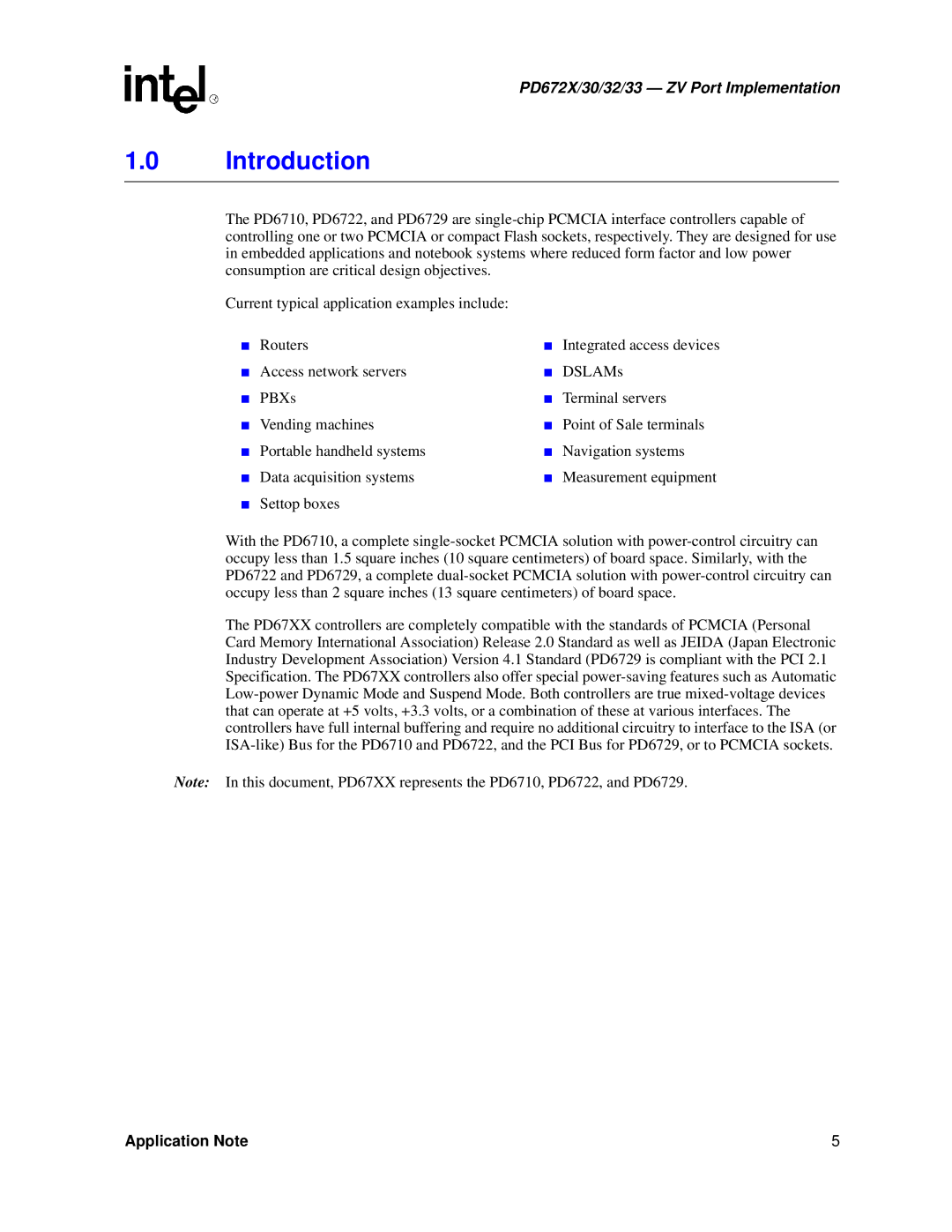PD672X/30/32/33 specifications
The Intel PD672X family, which includes the PD6720, PD6723, PD6724, and PD6725, represents a significant advancement in the realm of integrated circuit technologies, specifically catering to the demands of embedded systems and personal computer applications during the early 1990s. These components were primarily designed to serve as peripherals, particularly focusing on providing enhanced serial communication capabilities.One of the primary features of the PD672X series is its integration of multiple communication protocols, including both RS-232 and RS-422 standards. This versatility provides developers with the ability to utilize these chips in a wide range of applications, from basic data transfer to more complex networking tasks. The chips come equipped with flexible baud rate configurations, allowing users to adapt the communication speed to the requirements of their specific applications.
Another standout technology associated with the PD672X series is the incorporation of advanced interrupt handling and buffer management systems. This feature enhances data throughput by allowing incoming data to be stored temporarily in buffers, enabling the CPU to process information without being interrupted constantly. This is particularly beneficial in environments where time-sensitive data processing is critical, such as in industrial automation and real-time communication applications.
The PD672X series is also characterized by its compact design and low power consumption, making it suitable for portable devices and applications where space and energy efficiency are of paramount importance. These attributes allow manufacturers to incorporate the chips into a broader array of devices without significant constraints on size or battery life.
Moreover, the Intel PD672X family is notable for its compatibility with a variety of operating systems, ensuring that developers can leverage its capabilities across different platforms. This compatibility promotes wider adoption of the technology, as it can easily integrate into existing systems without the need for extensive modifications.
In conclusion, the Intel PD672X/30/32/33 series stands out for its robust communication capabilities, flexible configurations, efficient data handling, compact size, and system compatibility. These features collectively contribute to its enduring relevance in the embedded systems market, providing developers with a reliable solution for a multitude of applications that require effective serial communication.

